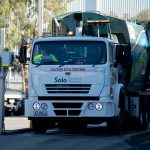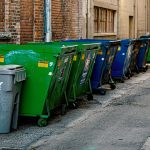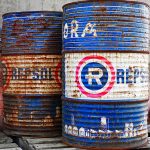Is Your Adelaide Business Recycling Waste Correctly?
Whether you run an office, warehouse, café, or retail shopfront, getting your recycling right is important. Some businesses assume that they’re doing enough, but common errors can undermine financial and environmental goals. This article explores whether your business is recycling waste correctly and highlights the most frequent mistakes companies make and offers practical advice and corrections. By refining your approach to recycling and optimising your recycling systems, you can reduce costs, lower waste to landfill, and improve your sustainability credentials.
Common Recycling Mistakes Businesses Make
When it comes to the disposal of rubbish, one mistake businesses make is assuming that any recycling bin will do. Contamination (putting non‑recyclables in the recyclable stream), mixing paper and greasy food waste, or overfilling bins can lead to entire loads of recyclables being rejected. This can increase disposal costs and lead to more waste being sent to landfill.
Another mistake is employing overly broad categories. For example, mixing cardboard with general waste or not segregating metals and organics weakens your recycling efforts. Some businesses also neglect to clean or flatten their cardboard, making it longer and harder to process.
Finally, infrequent audits or lack of staff training can create recurring errors, as staff may assume they “know” leading to mistakes. A mistaken belief or “it’s only a small thing” can compound over time, causing sizeable waste and cost issues.
Commercial Recycling: Setting Up Proper Systems
To achieve better recycling, businesses should begin by assessing their waste streams. Which materials appear most in their waste? Cardboard, food waste, plastics, or metals? At the Adelaide Waste and Recycling Centre (AWRC) we offer specialised recycling and bin services to assist local businesses.
Companies should implement clear labelling and colour‑coding on their bins, so that staff know exactly where their disposed items should go. For example, designate one bin for cardboard, another for metals, another for organics, and so on. Additionally, ensure that your bins are sized appropriately: too small can lead to overflow; too large, and inefficiencies arise.
Schedule regular internal audits to examine contamination rates and correct recurring recycling mistakes and use those audits as training opportunities. Also, track volumes and weight. When you reduce general waste and increase recyclables, your waste disposal bills may reduce.
Addressing Recycling Mistakes: Practical Corrections
1. Contamination control
Place signage that illustrates “yes/no” examples. Use bin liners or visual guides. If staff place non‑recyclables into the recycling bin, correct the issue promptly. By reducing contamination, you maximise successful recycling.
2. Pre‑sorting cardboard and flattening boxes
Cardboard is one of the highest volume recyclables for businesses. Use the AWRC’s cardboard recycling service to streamline this stream. When ready for disposal, ensure all cardboard is collapsed and kept dry to avoid moisture damage or nesting pests.
3. Separate organic waste streams
If your business generates food scraps or garden waste, provide a separate organics bin. At the AWRC, green waste is handled separately and processed into compost or landscaping material. Keeping organic waste out of your general or mixed recycling reduces spoilage and contamination issues.
4. Scaling bin services correctly
Under‑servicing or over‑servicing is inefficient. The AWRC’s industrial bin services help businesses manage bin size and collection frequency to match waste volumes. Reassess your needs every six months to adjust to seasonal or operational changes.
5. Staff engagement and training
Recycling systems only succeed if people use them correctly. Hold training sessions, place reminders near bins, and incentivise best recycling practices. If staff understand the environmental and financial impacts of recycling mistakes, compliance will improve.
The Financial and Environmental Benefits of Doing It Right
When your business minimises recycling mistakes, you reduce rejected loads, avoid landfill surcharges, and likely pay less for waste disposal overall. Because recycled materials are cheaper to process than general waste, a well‑segregated system often pays for itself over time.
Environmentally, better recycling means less methane from landfill, reduced resource extraction, and a more circular economy. At our resource recovery centre, we help divert vast volumes of recyclables from entering landfill.
Additionally, demonstrating recycling practices enhances your public image, as customers and partners increasingly expect businesses to act responsibly.
Are You Recycling Waste Correctly?
Correctly recycling waste entails consistent systems, vigilance against mistakes, and ongoing improvement. Some businesses believe they are recycling effectively, yet contamination, incorrect sorting, and lack of oversight undermine their efforts. By setting up clear systems, auditing regularly, engaging staff, and utilising specialised services like the ones that we provide, you will get closer to “correct” recycling, in which the maximum possible volume of waste is diverted from landfill.
Take the Next Step Toward Better Recycling
If you’re ready to assess or improve your recycling, the Adelaide Waste and Recycling Centre is here to help. Contact us today to discuss your waste streams, request a free quote, or schedule an audit of your current practices. Together, we can eliminate recycling mistakes, save you money, and strengthen your environmental performance.
Adelaide Waste and Recycling Centre
Our friendly operators are available at the AWRC if you need to clarify any further information.


